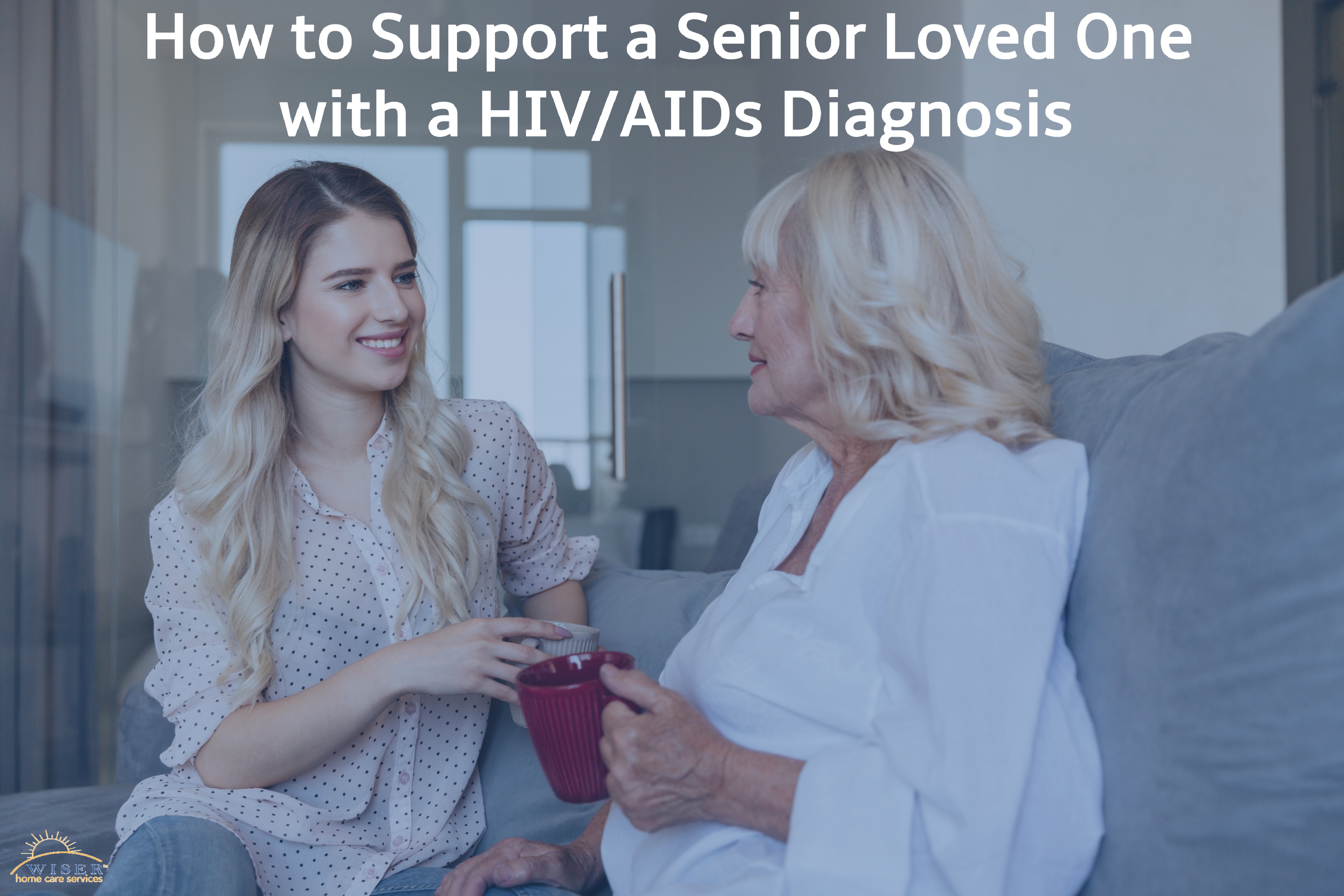Although HIV/AIDs are widely believed to have first appeared in humans in the 1920s, the AIDs crisis didn’t become a full-blown epidemic until the 1980s.
In the early days, medical professionals didn’t know much about the virus and how to treat it. Therefore, contracting the virus was almost certainly fatal. Now, thanks to modern medicine, living with HIV/AIDs is possible.
In fact, statistics have found that of the 1.2 million people living with HIV infection in the U.S., nearly half are over the age of 50. And, each year more and more people over the age of 50 are newly diagnosed with AIDs.
Considering this, the National Institutes of Health founded National HIV/AIDs Aging Awareness Day in 2008. The goal of this annual one-day campaign, held on September 18th, is to provide support for senior loved ones with HIV/AIDs, and remind everyone that age does NOT eliminate the risk of contracting HIV/AIDs.
As with any disease, aging with HIV/AIDs can present its own set of challenges. Such as finding a caregiver.
In fact, due to misinformation, many potential family caregivers experience apprehension when it comes to providing loved ones with HIV/AIDs care. Despite common misconceptions, the risk of contracting HIV/AIDs as a result of caring for a loved one is quite low since most transmission is entirely restricted to sexual contact, blood transfusion, and intravenous drug use.
With that being said, if you have a loved one who is living with HIV/AIDs here are 7 ways you can help provide the care and support they need as they age.
Educate Yourself
As we mentioned earlier, there are many misconceptions regarding HIV/AIDs out there. Before you can help your loved one, you need to have a thorough understanding of their illness. This will help quell any misconceptions and prepare you for what to expect. The Red Cross and many other HIV/AIDs services across the country provide quality training.
Encourage Treatment Compliance
One of the most common causes of failed HIV/AIDs treatment is non-compliance. Experts suggest that the most common reasons for non-compliance of HIV treatment are depression, misunderstanding instructions, complicated doses, cognitive impairment, and cost. Simply being there to support and encourage your loved one to follow the treatment plan set out by their physician will help immensely.
Keep Track of Medication
As mentioned above, a common reason for non-compliance is complicated medication doses. There are many ways to make this easier including medication tracking apps, pill boxes, calendars, and medication dispensers. In addition, you should help them keep track of what prescriptions they have to avoid drug-drug reactions.
Be Vigilant Against Infections
HIV/AIDs greatly diminish the effectiveness of one’s immune system. In fact, so much so that germs that may not harm you could bring them sickness or even be fatal. To avoid this, make sure you:
- Stay up to date on your immunizations
- Wash your hands frequently
- Use gloves when handling bodily fluids and waste
Provide Social Support
Even with the advances in medication and care, an HIV/AIDs diagnosis can be quite scary. Simply being there for your elderly loved one in their time of need helps more than you think. We recommend acknowledging the diagnosis and showing openness to discuss it. However, if they are not comfortable talking about you, just being there to provide company is important.
Reinforce General Health and Wellness
To help your loved one continue to live a fulfilling life in spite of their HIV/AIDs diagnosis, it is important that you help reinforce good health and wellness habits. This includes helping them plan healthy meals with lots of vegetables and fruits as well as encouraging them to remain physically active. Living a healthy lifestyle will help them keep up the strength to fight the disease.
Wiser Home Care Services Can Help
At Wiser Home Care Services, we know it is important to you to have great care for your loved one. We can help you do that.
For those with chronic illnesses, we develop a disease care plan that coordinates with all medical professionals involved, so there is consistency in the disease management as well as great personal care on a daily basis.
In addition, we can provide support to a family caregiver when it comes to disease management. This allows families to spend more quality time together while we takes care of the needs of daily living.
Setting up care is easy. Simply call or email us and we can setup an appointment to establish a care plan to personally accommodate your loved one’s needs.
Click here to request your free care assessment.

